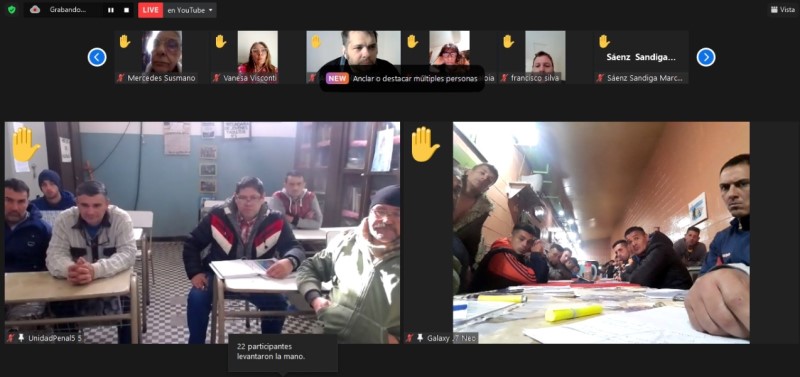As planned, this Saturday, May 21, the new diploma course organized by the National University of Mar del Plata and the Liberté cooperative will begin.
Therefore, it is a university extension and bears the title of "Penal System and Community".
From the zoom platform it was possible to follow the academic event, although YouTube also served to be able to do it and in an unprecedented way, due to the fact that it was managed and administered solely by the prisoners, Liberté had its radio launch from its own station, through the modulated frequency, in the 105.3 MHz score of the dial, reaching the air transmission to cover the entire prison complex of unit 15 of Batán.
The day was hierarchized by the figure of the former judge of the Inter-American Court of Human Rights, Dr. Raúl Zaffaroni, who, before more than eight hundred people, had his time as a senior professor in his specialty, addressing the issue that involves a problem that It crosses time, like the violation of human rights, mainly in those who find their rights violated from the moment they are imprisoned.
The participants were not only from Argentina but also from neighboring countries, such as Colombia, Ecuador, Chile, Peru, among others, who accompanied the opening day of the event for a space of three hours and which will be repeated in fourteen days, extending until the month November of this year.
Professional psychologists, social workers, lawyers, civil institutions and their representatives, courts, faculty students, teachers, members of the penitentiary service, prisoners from different units, remained expectant of the two talks on this occasion since the first to offer her message was the teacher and extensionist, the Vice Dean of the Faculty of Health Sciences and Social Work of the National University of Mar del Plata, Soledad Alves.
After the lectures, the participants were able to take part through questions formulated to Zaffaroni, who, as is his custom, knew how to answer in a simple and clear manner.
Many of the concerns were also answered by other magistrates, who acted as participants. The testimonies of institutional abuses against prisoners from different places did not miss the appointment and on more than one occasion did not stop surprising their own and others.
Source: Liberte






